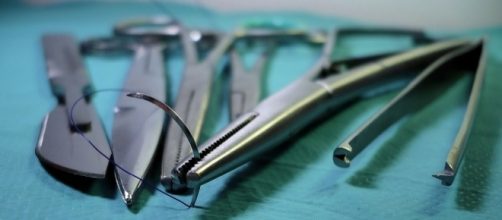Valley Spencer Long, M.D., age 77, who specializes in urology, performed surgery in 2013 at JC Blair Memorial Hospital in Huntingdon, PA, on 54-year-old Steven Hanes, of Mountain Union. Long’s post-operative notes stated that “it appeared” he made a mistake, according to Braden Lepisto, Hanes’ attorney. He removed the healthy testicle from Hanes who underwent surgery due to a persistently painful condition caused by an injury.
Following a civil trial, which lasted two-and-a-half days, a jury in Pennsylvania awarded Hanes $870,000 -- $250,000 in punitive damages and $620,000 in compensatory damages last week.
There was one man and 11 women on the jury. Hanes’ attorney said the jury deliberated, and decided in the plaintiff’s favor, for roughly 80 minutes.
Surgical error left patient with fear
Hanes now has a debilitating fear of looking for further treatment, according to Lepisto. For the rest of his life, Hanes would require testosterone for the rest of his life if his right testicle is lost. Another patient, according to Lepisto, died under the care of Long, who no longer operates on people and no longer works for the hospital where Hanes’ surgery was performed. Lepisto is also representing that person’s family.
For 15 years, Hanes suffered with pain before he saw Long for treatment. Lepisto said there were less invasive options available.
According to court records, Hanes’ right testicle had scarring and damage from an injury several years earlier. Long scheduled the orchiectomy, which is removal of the testicle.
In his notes following surgery, court documents state that Long’s post-operative report said that Hanes’ left testicle and cord “may actually” have been removed, not the right one. Hanes filed his medical malpractice suit against Long in 2014. The hospital was also named as a defendant in the suit that accused both of negligence.
Case outcome no 'laughing matter'
While some people initially saw the case outcome as a “laughing matter,” said Lepisto, the monetary award was justified in light of the evidence and the “toll” on his client.
He said Long offered an explanation about what went wrong in the operating room but still makes “no anatomical or medical sense.” Long contended that the right testicle had a spermatic cord leading to the left side of Hanes’ body. Simply put, according to Lepisto, Long stated that Hanes’ testicles “switched sides.”
Contrary to Long’s assertions, Lepisto explained to the Washington Post that the doctor could have taken additional steps, assuring that the right testicle was the one removed. He said that there are “structures in the body” preventing testicles from switching sides.
The jury decided that Long was recklessly indifferent in his treatment of Hanes. The surgical mistake and the continuing pain affect Hanes greatly, according to his lawyer.
The Medical Malpractice civil action that was decided favorable to Hanes was the first verdict in the immediate area for, at least, 25 years. As many as 2,700 times annually, operating on the incorrect side of the body happens in the United States, according to New York Times’ estimates.


